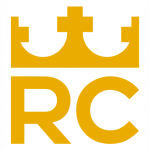

Reading will be assigned weekly as obligatory preparation for class discussion and lectures. In addition to readings in the tradition (Scripture, creeds, patristic texts, medieval theology) and in contemporary theological thought, appropriate critical commentary (exegetical studies, historical analyses, etc.) will be assigned where helpful. Advanced degree students participate in a research seminar on primary sources.
Attendance at all classes is required.
Basic Degree (RGT3243)
Students completing this course will be able to:
1. Religious Heritage
a. Take personal responsibility for the Scriptural and dogmatic tradition in Christology, out of a critical personal appropriation of same.
b. Articulate the key terms and relations of one particular approach to understanding the mystery of the Incarnation (the Thomist-Lonerganian) from reflection on personal and communal religious
experience.
c. In order to:
i. Give a catechetical instruction or Scripture reflection
ii. Accompany the general faith formation of children, teens, and adults
iii.Constructively answer most general theological questions encountered in pastoral settings, and refer when appropriate
2. Cultural Context – Bring this understanding of Christology to bear on contemporary pastoral and theological situations, in order to collaborate responsibly with persons of other cultures and religious traditions in day to day practice.
3. Personal and Spiritual Formation – Articulate for themselves the spiritual and mystical dimensions of the doctrine of the Incarnation, in order to:
a. Pray with and in the Christian tradition for themselves
b. Prepare and deliver a seven to ten minutes Scripture reflection, and a twenty minute instruction.
c. Plan and carry out liturgies and prayer services.
4. Ministerial and Public Leadership – Make use of an analogical, limited though fruitful grasp of the mystery of the Incarnation as a heuristic for understanding and responding to pastoral situations, in order to evaluate the specific spiritual, ecclesial, sacramental needs of persons who have come to them, and provide appropriate care, including referrals.
Advanced Degree (RGT6222)
Students completing this course will be able to:
1. Knowledge of the course material –
a. Take personal responsibility for the Scriptural and dogmatic tradition in Christology, out of a critical personal appropriation of same.
b. Articulate the key terms and relations of one particular approach to understanding the mystery of the Incarnation (the Thomist-Lonerganian) from reflection on personal and communal religious
experience.
c. In order to give a lecture on each topic at a basic degree level
2. Scholarly Proficiency – read primary sources and interpret them on their own authority, at a moderate level of competence in classroom settings
3. Personal and Spiritual Formation – Articulate for themselves the spiritual and mystical dimensions
An updated detailed course schedule to follow.
Week 1
Introduction to the course
Week 2
Jesus of Nazareth and 1rst century Judaism
Week 3
Easter
Week 4
Jesus the Christ in the early kerygma, and the emergence of NT Christologies
Week 5
The Way to Nicaea: Is the human Jesus of Nazareth truly God?
Week 6
From Nicaea to Chalcedon: Is Jesus the Christ, truly God and truly human, truly one?
Week 7
From Chalcedon to Constantinople III: In what sense is the saving activity of the one Jesus the Christ, truly God and truly human, truly one?
Week 8
Recovering Christ’s Humanity
Week 9
The Ontological and Psychological Constitution of Christ
Week 10
What did Jesus know, and how?
Week 11
“The just and mysterious Law of the Cross”
Week 12
Open topic